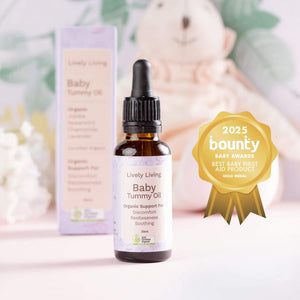Holistic Care for Your Child's Well-being Journey: A Guide
Raising a child is a beautiful journey, presenting moments of joy, learning, and growth. As parents, we aim to provide our children with the best possible start. This is where a holistic approach to their well-being becomes so important. Holistic care for your child's well-being journey considers the whole child: their body, mind, and spirit, promoting comprehensive holistic development from early childhood.
This approach moves beyond simply addressing symptoms. It concentrates on fostering a balanced, nurturing environment that supports your child's overall health and happiness, helping children thrive. Let's explore how you can apply holistic care to support your little one's journey effectively.
Table Of Contents:
- Understanding Holistic Care for Your Child's Well-being Journey
- Nourishing Your Child's Body
- Nurturing Your Child's Mind
- Caring for Your Child's Spirit
- Holistic Health Practices for Children
- Creating a Healthy Home Environment
- The Importance of Regular Check-ups
- Conclusion
Understanding Holistic Care for Your Child's Well-being Journey
Holistic care is a practical method for supporting your child's growth and holistic development. This comprehensive strategy considers all facets of your child's life, from nutrition and physical activity to emotional well-being, social skills, and cognitive development. The well-being impacts of such an approach are far-reaching, establishing a mind body connection that nurtures every aspect of their being.
By addressing these interconnected areas, you help your child build a solid foundation for lifelong health and happiness. It is about achieving balance and harmony across all parts of their child's life, creating a supportive environment holistic development depends on. This journey helps parents understand their child's needs more deeply.
Nourishing Your Child's Body
Good nutrition is a cornerstone of holistic care and directly influences a child's physical health. Feeding your child a balanced diet rich in fruits, vegetables, including leafy greens, whole grains, and lean proteins provides essential fuel for growth and learning. Nutrition plays a crucial role in overall children's health and affects brain function positively.
Creating positive eating habits and a healthy relationship with food is equally important for good physical development. Involve your child in meal planning and simple food preparation. This participation can make healthy eating more engaging and educational, teaching them valuable life skills.
The Power of Physical Activity
Regular physical activity is vital for your child's physical development and mental health. It helps build strong bones and muscles, improves coordination, and enhances mood and self-esteem. When children develop a love for movement, it benefits their long-term mental well-being.
Find activities your child genuinely enjoys, whether it is team sports, dancing, or playing outdoors. Regular physical movement should be fun, not feel like a chore, as this encourages a lifelong habit. Active play helps children learn new skills and can even improve sleep patterns significantly.
Nurturing Your Child's Mind
A child's mind is eager to absorb new information and experiences. Encourage child curiosity and foster learning through play, reading, and exploration, which are essential for cognitive development. Provide ample opportunities for creative expression through activities like art, music, or storytelling, which support acquiring knowledge.
In today's fast-paced world, it's also important to manage influences like social media exposure to protect their developing minds. Rest is also fundamental; a well-rested mind is better prepared to learn and grow, aiding in critical thinking. Establish consistent sleep routines so your child gets enough quality rest, which is vital for overall children's wellness.
Emotional Intelligence and Social Skills
Helping your child understand and manage their emotions is a significant part of holistic care, supporting their child's mental health. Teach them to identify and express their feelings in healthy, constructive ways and develop emotional regulation. Encouraging empathy and kindness helps children build positive relationships and social skills.
Social connections are vital for a child's mental well-being and help develop emotional resilience. Create opportunities for your child to interact with peers and build friendships, as these experiences help them learn coping strategies. Effective emotional communication within the family provides strong emotional support, enabling children to build confidence.
Supporting children's mental development in this way equips them to handle challenges throughout their adult life. These efforts help them learn coping skills for various situations. It's about nurturing a healthy child's mental state from an early age.
Caring for Your Child's Spirit
Caring for a child's spirit involves helping them find meaning and connection. Encourage a sense of wonder about the world and teach appreciation for nature. This doesn't have to be religious; it's about fostering an inner sense of peace and purpose.
Mindfulness practices can be very beneficial, even for young children, helping them develop self-awareness. Simple mindfulness techniques, such as focused breathing exercises, can calm anxious minds and promote inner peace and mental clarity. These practices also reduce stress and support emotional well-being.
The Role of Family and Community
A strong support system is a crucial role for your child's overall well-being. Foster close family relationships through quality time together, such as regular family outings. As a parent or caregiver, being a positive role model demonstrates healthy behaviors and emotional responses.
Engage with your local community to give your child a sense of belonging. This involvement helps parents build a network and shows children the value of connection. When caregivers create a supportive environment, children feel secure and are more likely to thrive.
Here's a quick look at key areas in holistic child wellness:
| Pillar of Wellness | Focus Areas | Benefits for Children |
|---|---|---|
| Physical Health | Balanced nutrition (including leafy greens), regular physical activity, sufficient sleep | Strong body, sustained energy, better immune function, good physical condition. |
| Mental Wellness | Cognitive stimulation, hands-on experiences, problem-solving, emotional regulation | Sharp mind, enhanced brain function, emotional resilience, effective coping strategies. |
| Emotional Health | Developing self-awareness, empathy, secure attachments, emotional communication | Emotional stability, healthy relationships, ability to support emotional needs of self and others. |
| Social Growth | Peer interaction, learning social skills, cooperation, building confidence | Strong interpersonal skills, increased self-esteem, better teamwork. |
| Spiritual Aspect | Connection to nature, simple mindfulness practices, fostering a sense of purpose | Inner peace, gratitude, mental clarity, reduced stress. |
Remember, supporting children's growth in all these areas takes effort but yields profound rewards. It helps children learn valuable life skills.
Holistic Health Practices for Children
Several holistic health practices can benefit children and complement other health treatments. Gentle yoga or tai chi can improve flexibility and balance while teaching mindfulness. Techniques such as aromatherapy with child-safe essential oils may promote relaxation and improve sleep quality.
Play therapy is another valuable tool, offering children a way to express feelings and work through challenges in a supportive setting. Massage can be a wonderful way to bond with your child while providing physical and emotional benefits, such as reduced stress. Always consult with a pediatrician before introducing new health practices to support children's health appropriately.
Creating a Healthy Home Environment
Your home environment plays a significant role in your child's well-being journey and fostering environment holistic development. Strive to create a safe environment and a nurturing safe space that supports health and happiness, making children safe. Using natural cleaning products can reduce exposure to potentially harmful chemicals.
Bringing plants indoors can improve air quality and offers a chance to teach your child about nature through hands-on experiences. Limiting screen time and establishing tech-free zones encourage more face-to-face interaction and creative play. A clutter-free, organized living space can also contribute to reduced stress and promote a sense of calm and mental clarity in your child's life.
The Importance of Regular Check-ups
While holistic care emphasizes prevention and overall wellness, regular medical check-ups remain very important. These visits allow your pediatrician to monitor your child's growth and physical development. They can identify potential health issues early and provide guidance on maintaining optimal children's health.
Do not overlook dental and eye exams, as good oral health and vision are integral parts of overall well-being. These check-ups are part of a comprehensive holistic approach. They help in supporting children's mental and physical health effectively.
Conclusion
Holistic care for your child's well-being journey is about considering the big picture and nurturing every aspect of your child's health: physical, mental, emotional, and spiritual. By adopting this comprehensive holistic approach, you provide your child with the best opportunity to grow into a healthy, happy, and resilient adult. This solid foundation helps children thrive and successfully manage the transitions into adult life.



















